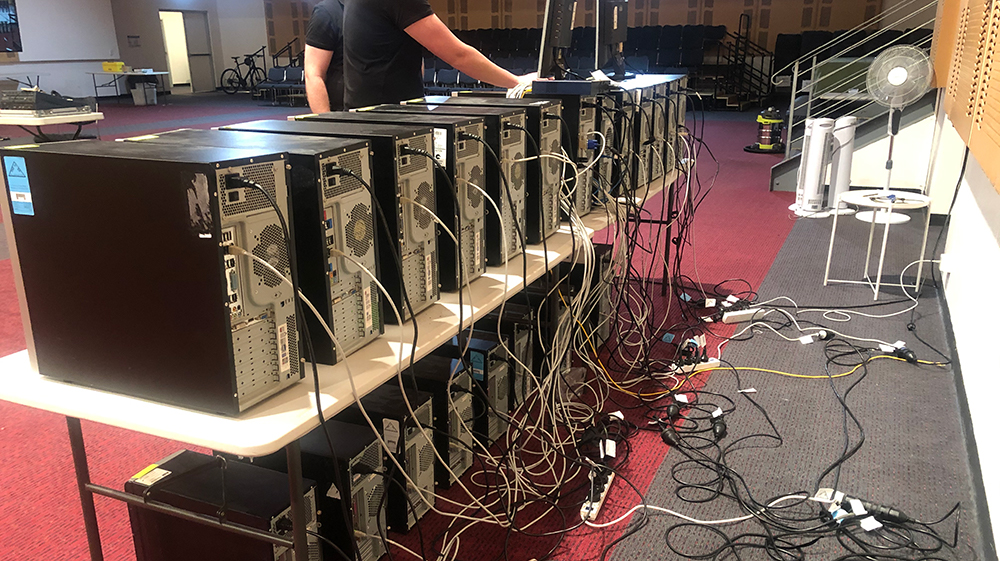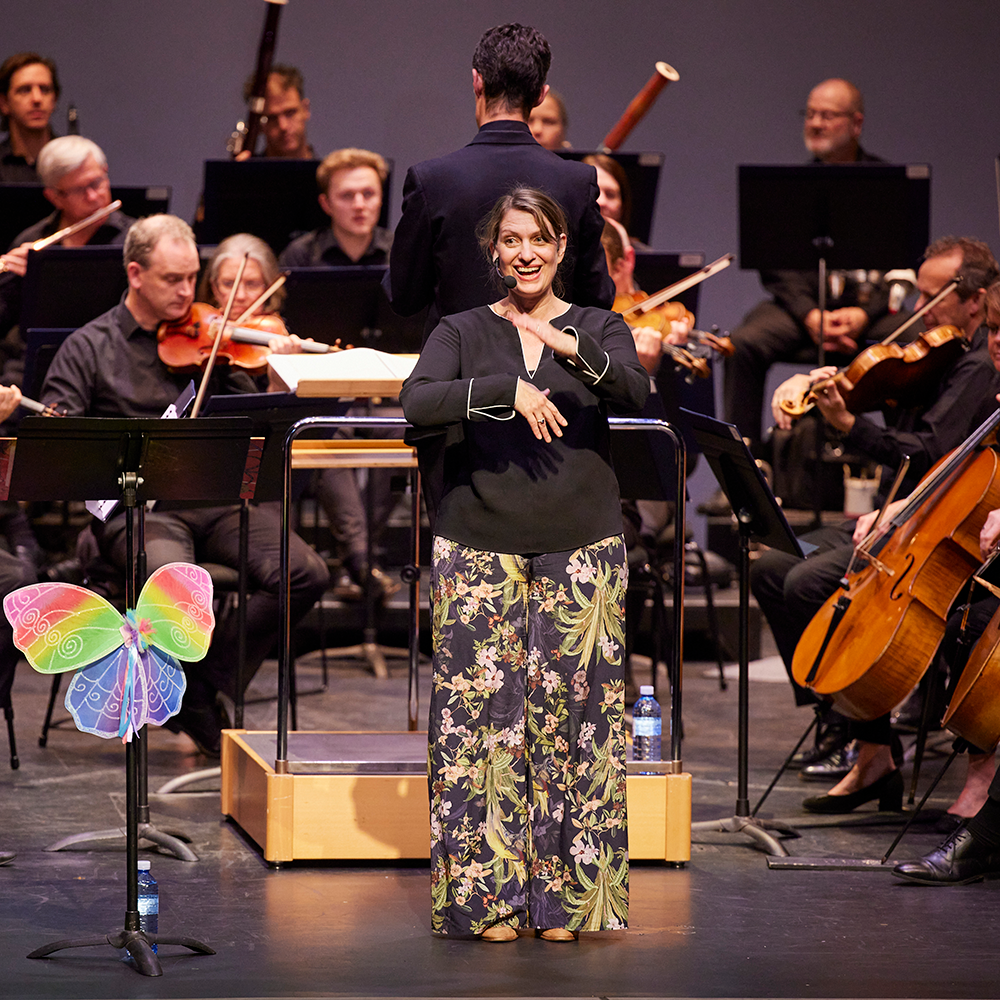A donation of a different kind
- Behind the Scenes

William Jarman, ASO Production Coordinator, shares how we utilised surplus computers while Grainger Studio was closed to contribute to the fight against COVID-19.
As the global shutdowns caused by COVID-19 swept the world at the beginning of 2020, the Operations Team at the ASO commenced preparations for what was anticipated to be a lengthy shutdown of Grainger Studio and the ASO offices. While the players and administration staff quickly vacated the building to work from home, the Operations Team spent our time delving into every nook and cranny in the building, removing nearly twenty years of accumulation – a project that could not have been undertaken on top of our normal orchestral duties. Discovered during this spring clean were redundant computers of various ages. Normally our old computers are donated or recycled, but they do sometimes get put to one side to be dealt with at a later date, which often never comes.
Staring at this pile of technology we felt we had a unique opportunity. While briefly joking about bitcoin mining, we realised there was a large amount of computing power that could be donated to a worthwhile cause.
Distributed computing is a model in which a task is divided into many small sub-tasks and shared between computers. By distributing tasks to idle desktop computers across the globe, researchers are able to draw on a vast pool of computational power which would otherwise be wasted. Projects using a distributed computing approach have been around longer than the ASO has been at Grainger Studio. SETI@home, which aimed to discover evidence of extra-terrestrial life, was one of the first and best-known distributed computing projects; launching in 1999 SETI@home led to the development of the Berkeley Open Infrastructure for Network Computing (BOINC) platform for distributed computing.
We began by researching various distributed computing projects around the world. Reading about protein folding projects quickly solidified the idea that we could contribute to the fight against COVID-19 by volunteering computing power from our old machines. We could make a difference, no matter how miniscule.
Protein folding is a problem which lends itself very well to a distributed computing approach. It involves vast numbers of data being manipulated to model how proteins behave in 3D space, and to investigate how these proteins then interact with other known proteins such as those which make up viruses like COVID-19. Distributed protein folding has also been applied to research on Alzheimer’s disease, cancer, and malaria.
When we looked at where to donate our computing power, we saw that COVID-19 was being tackled by only a couple of distributed computing projects including Folding@home, but we found Rosetta@home running on the BOINC platform would be a simpler option to deploy to our machines.
The distributed computing approach provides computing power in orders of magnitude larger than the world’s largest supercomputers. As of April 2020, Folding@home became the world’s first exaFLOP computing system, capable of performing over 2.43 exaFLOPS (that’s 2.43 x 10^18 Floating-Point Operations Per Second!), whereas the world’s largest supercomputer in Fugaku, Japan, achieves a measly 415 petaFLOPS (4.15 x 10^17). While Rosetta@home only peaked at 1.7 petaFLOPS back in June 2020, it did take a Guinness World Record in 2011 for the World’s Largest Computing Grid.
As the ASO began to transition to normal operations and staff and players returned to the building, we were no longer able to dedicate space to these computers. They have since been dismantled and recycled or donated, but during the COVID-19 shutdown period the ASO was in the top 1% of contributors in the world to the Rosetta@home project, which is an achievement worth recognising.
On the 9th of September, researchers from Rosetta@ home published the research article De novo design of picomolar SARS-CoV-2 miniprotein inhibitors on ScienceMag.org describing 10 miniprotein inhibitors for COVID-19. According to the researchers, these miniproteins have increased potential efficacy and a lower cost than antibody-based therapeutics. Having watched the job list flick past on our pool of machines, I like to believe that we contributed to those findings and that we were a part of something really important.




